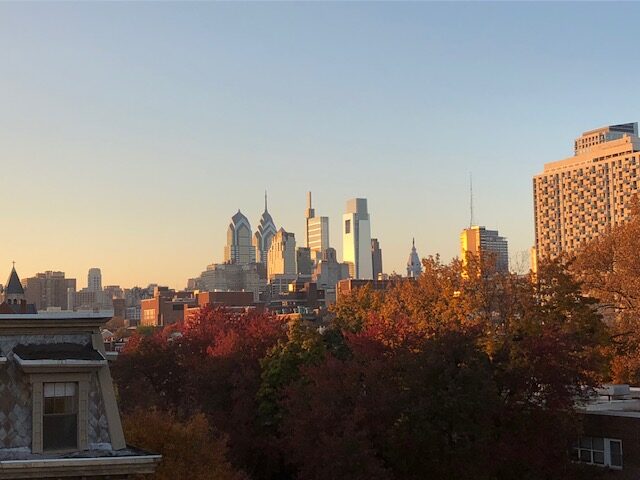The city of Philadelphia has received a perfect score on the Human Rights Campaign Municipal Equality Index, which assesses LGBTQ equality in municipal policy, law and services. The index ranks cities based on categories including LGBTQ nondiscrimination laws, benefits for LGBTQ employees, equal access to public services, and fair enforcement of the law. Other areas across the region scored in the index include Allentown (100), Reading (91), New Hope (89), Wilmington (88), Harrisburg (69), and Rehoboth Beach (58).
The index ranked 506 cities in total, including all 50 state capitals and the 200 largest cities in the country. 94 cities received a perfect 100 score on the index, with the average score this year being 64. The states of North Dakota, Nebraska, Virginia and Kansas reported the greatest gains, with 34 more states also improving their region’s overall scores from last year. The index also revealed that compared to last year more cities now have trans-inclusive healthcare benefits, anti-conversion therapy ordinances, as well as policies requiring contractors to have nondiscrimination protections that cover sexual orientation and/or gender identity.
Since the Philadelphia City Council passed the first LGBTQ nondiscrimination law in 1982, the city has been consistently ranked as one of the most LGBTQ-inclusive places in the country. In addition to receiving a perfect score on the Municipal Equality Index, Philadelphia was also recognized by the MEI for going above and beyond the stated criteria, including protecting youth from conversion therapy and for providing services specifically for LGBTQ youth, seniors, homeless, and the transgender community.
“Philadelphia is proud of its reputation as a progressive, LGBTQ-friendly city,” Mayor Jim Kenney told PGN. “Our high ranking on the HRC Municipal Equality Index for the past several years has helped affirm that reputation, and we are excited to once again receive a perfect score from the Human Rights Campaign. Our administration is committed to ensuring the continued protection, inclusion, and celebration of LGBTQ people in Philadelphia.”
Celena Morrison, Executive Director of the Office of LGBT Affairs, also celebrated the perfect score but stressed that the work for LGBTQ equality must continue.
“2020 has been a difficult year for Philadelphia’s LGBTQ community,” Morrison said, “so we welcome moments of celebration like this. It is, of course, a great honor to receive a perfect score on the Human Rights Campaign’s Municipal Equality Index, but we must also remember that we still have work to do. These accolades will serve as continued motivation for me and my team as we work to improve the circumstances of the most marginalized within our community.”
Human Rights Campaign President Alphonso David said in a press release “The results of this year’s Municipality Equality Index show definitive evidence that our local leaders across the nation are standing up for equality — even as they faced headwinds from state governments or the Trump-Pence administration. There is no question that the Trump administration made every effort to attack laws aimed to protect LGBTQ people, and our cities have responded with inclusivity and innovative public policy. Although there is newfound optimism sweeping the country with the incoming Biden-Harris administration, there is still work to be done and ground to make up.”
Rebecca Isaacs, Executive Director of Equality Federation Institute, said in a press release “As we come to the end of a truly unique year, this report on LGBTQ equality at the local level provides our community with hope — hope for the continued progress and resilience of the LGBTQ state-based movement. We are preparing for a new, friendlier federal administration, but one that we know will face immense challenges in rebuilding our nation. Thus, it is critical that the work to advance protections for LGBTQ people continues at the state and local level. “This marks the fourth year in a row that the national city score average increased, and we will work tirelessly to ensure that number continues to grow. It’s time for leaders at every level to take a stand and demand that no one be treated differently because of who they are, where they live, or who they love.”
